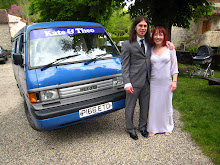The thing about Belgium is that it lacks definition. For the quick visitor, like us, it does have the physical or architectural landmarks that can guide our itineraries and shape the town in our imaginations. There is nothing in Brugge, Ghent or Brussels - all charming, lovely and differing cities all offering a different version of Belgium - that stands out and defines them the way The Eiffel Tower does Paris, or the Mezquita does Cordoba, the Chapel Bridge Luzern, the Arena Verona, the Sagrada Familia Barcelona and so on. The closest Brussels can get to these architectural masterpieces is a small statue of a little boy taking a leak or the new European Parliament, which can hardly be considered Belgian. It's not that these beautiful cities don't have stunning buildings - they do, with the Grand Place as Brussels being as plush and ornate as anywhere we've seen on our travels - but they have none that live in the public imagination in quite the same way as St Peter's or Big Ben.
It's not surprising really when you consider that Belgium has only existed as Belgium since 1839; prior to that it was under Frankish, then Burgundinian, then Spanish, then Austrian, then finally Dutch rule. With the national borders based on religious (Catholic) rather than natural or linguistic boundaries there's no real sense of cohesion to the country, something sadly reflected by the current political crisis - Belgium is widely expected to split into two anytime soon. Only in Brussels are signs posted in both Flemmish and French (which ignores the German speakers in the East). Kate was convinced for ages that I was lying and we were actually already in The Netherlands - she's never been there but the landscape so conformed to her imagining of Dutch countryside - and once we headed south and the language of the road signs changed we might have well been in France.
Instead what cultural landmarks that exist do so in the people, rather than the places - what they eat, drink and do. The Chocolate is great, as are the waffles and the beer, and sea food fry ups are everywhere. Everyone seems to speak English, presumably to avoid learning either Flemmish or French, and is uber-helpful. Belgium may not have a grand tradition and popular imagining to draw on, but it's still a wonderful place. We hope it sticks around a bit longer.
Subscribe to:
Post Comments (Atom)




No comments:
Post a Comment